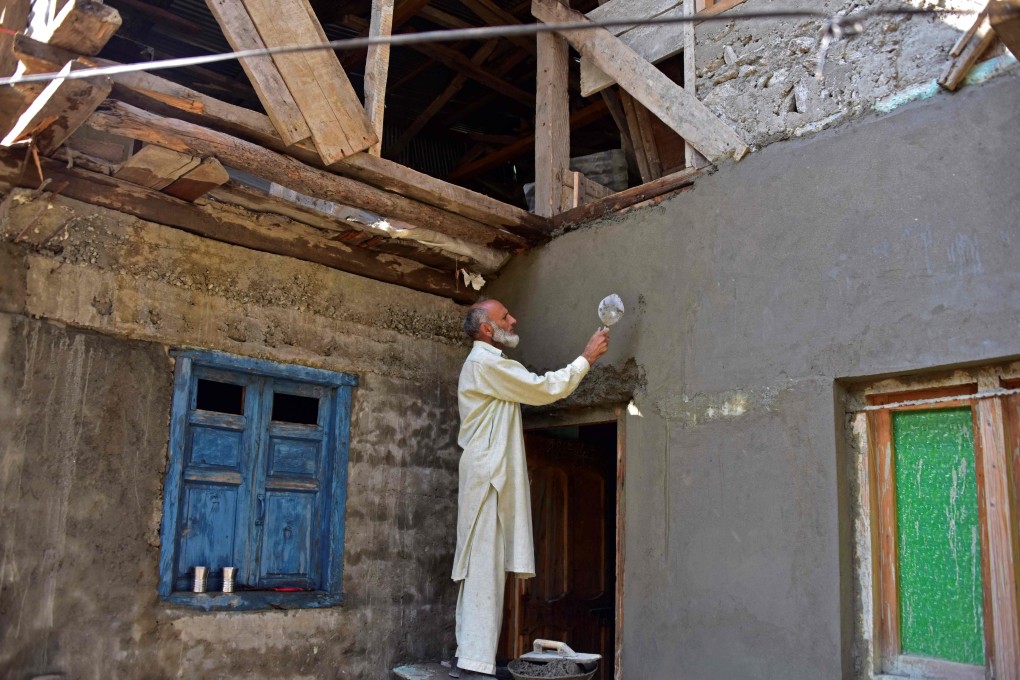India-Pakistan border clash: bullets kill and maim people at a rate not seen in 20 years
- Scores of civilians have been killed in cross-border shelling this year, and a UN observer mission car was struck by a bullet in December
- ‘Most of the time we are shut up in our house. It is a war on us,’ says a resident in Neelum Valley of Pakistan-administered Kashmir

Zameer Ahmad was building a community bunker on the Indian side of the Himalayan region’s disputed frontier – officially known as the Line of Control (LoC) – when a sniper round fired from Pakistani-controlled territory struck the ground nearby.
Ahmad and colleague Sadakat Hussain took cover behind a wall in the village of Simari. “We finally decided to try to run but we both got hit,” the 26-year-old said.
Ahmad took a bullet in the stomach and now has to wear a colostomy bag. Hussain, 23, walks with a limp because of his wounded foot.
“It is scary, we just don’t know why the firing starts,” said Hussain, speaking during a visit to the frontier zone organised by the Indian military.
Similar stories are told on both sides of the 344-kilometre (213-mile) partition amid ever-tougher talk between the nuclear-armed neighbours, who have fought two wars over the region in the past seven decades.